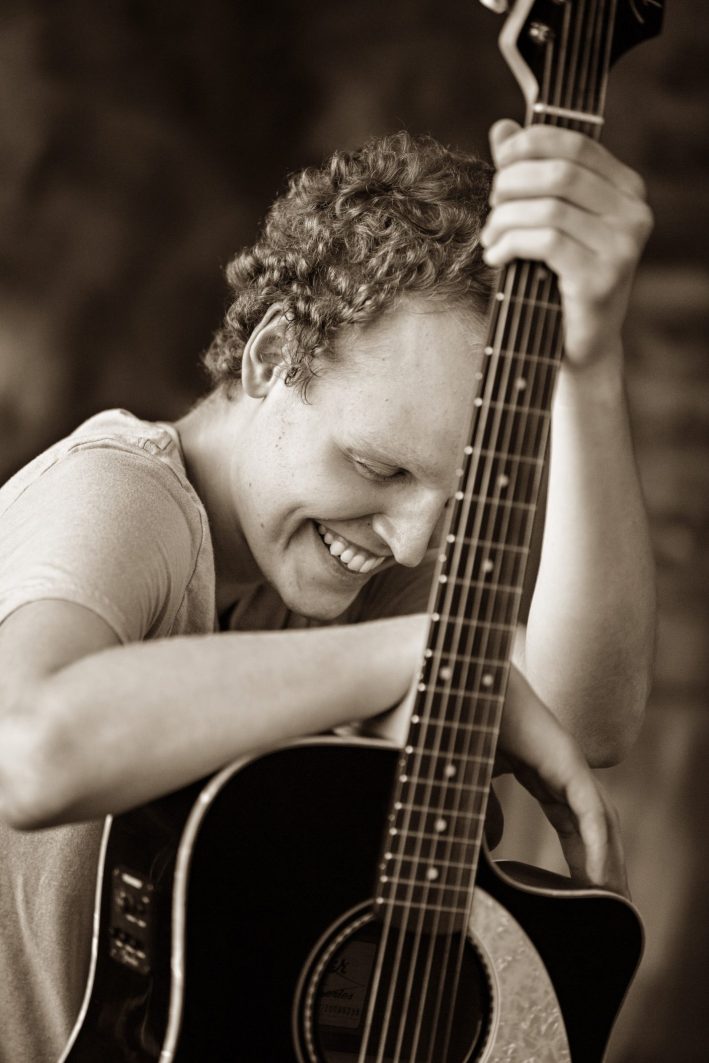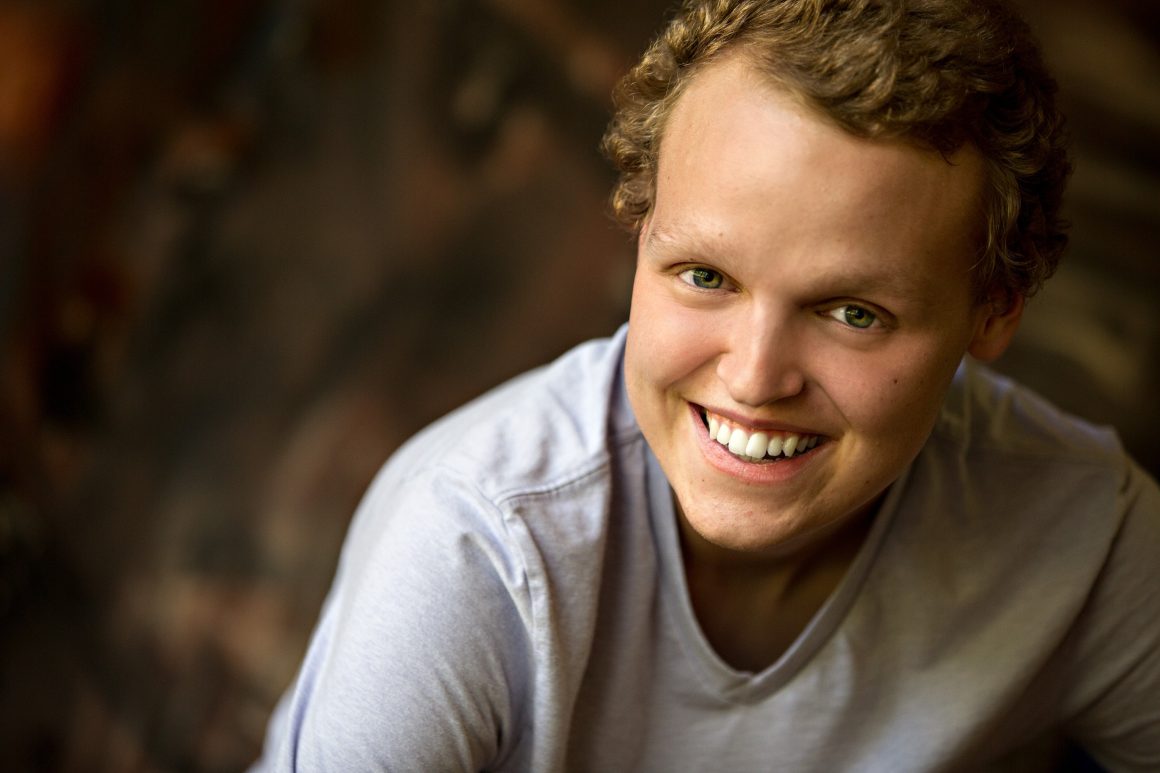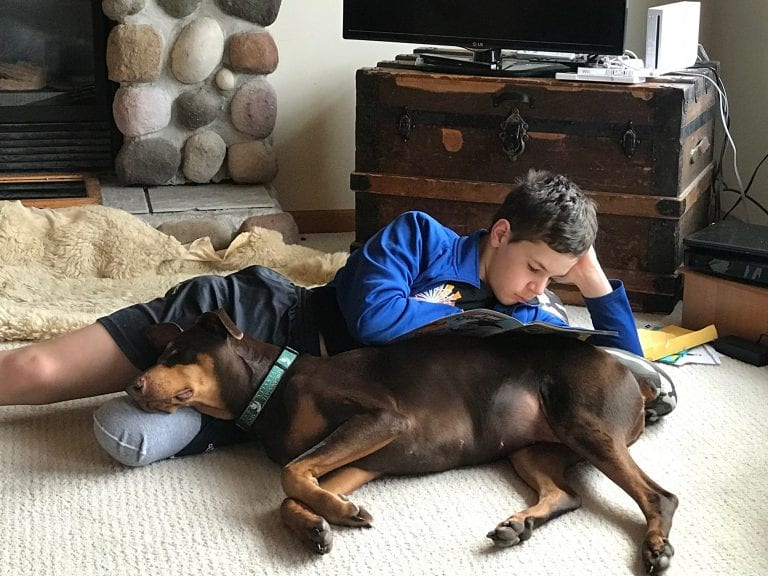Before high schooler and aspiring Minnesota songwriter-musician Zach Sobiech passed away from osteosarcoma, a type of bone cancer, in 2013, he and his family established the Zach Sobiech Osteosarcoma Fund in partnership with Children’s Cancer Research Fund.
Sharing a hospital room with kids younger than himself made Zach intensely sad. It was painful to see them sick, confined to bed and hooked to chemo lines when they should be out on the school playground. He felt it was bitterly unfair that so many children lost their childhood to cancer.

It was Zach’s hope to help make cancer treatments safer and more effective for kids diagnosed after him. His bold vision set forth a reality now 12 years in the making: to date, the Zach Sobiech Osteosarcoma Fund has raised more than $4.4 million, supporting nearly 20 research projects, clinical trials and seed grants.
"Zach's experience with childhood cancer, combined with our heartbreak from losing him, drives our dedication to continue his legacy," said Zach's mom, Laura. "Each project supported by Zach’s Fund brings us miles closer to a reality that Zach dreamed of.”
In fact, Zach’s Fund has allowed osteosarcoma research to flourish more in the last decade than in the previous forty years.
From unraveling the very complex nature of relapsed and metastatic osteosarcoma – with survival rates at less than 20% – to developing new strategies for treating and preventing its spread, Zach’s Fund supports promising breakthroughs and sparks global collaboration among institutions and researchers.
In what would have been Zach’s 30th birthday year, we are even more hopeful about the future of osteosarcoma research – thanks to Zach, his family, friends and those of you who continue to move his mission forward. While our work is far from finished, Zach’s life and legacy continue to help CCRF advance critical progress in tackling osteosarcoma. Recent projects include:
Understanding Tumor Behavior
Grant activity: 2017-2019
Dr. David Largaespada (University of Minnesota) investigated why metastatic and relapsed osteosarcoma is so resistant to chemotherapy, particularly in the lungs. He discovered key genes that alter tumor cell behavior once they move from the bone and reach the lung, helping explain how cancer evades treatment and offering vital insight for developing more effective therapies. Using a pre-clinical model, he also tested a method to increase chemotherapy sensitivity of lung metastases from osteosarcoma.
Antibody-based Immunotherapy
Grant activity: 2018-2020, 2025-2027
Dr. Branden Moriarity (University of Minnesota) identified a genetic biomarker called SEMA4D, which helps osteosarcoma develop and thrive. His laboratory performed pre-clinical testing of a new antibody-based immunotherapy targeting SEMA4D, which resulted in a national clinical trial to treat osteosarcoma patients. Based on the results, another trial is planned to combine the SEMA4D treatment with other drugs. Now, with additional funding from CCRF, Dr. Moriarity is embarking on a new trial using engineered gamma-delta T-cell immunotherapy to attack two targets that show up in osteosarcoma and many other kinds of childhood cancers as well.
Predicting Osteosarcoma Behaviors
Grant Activity: 2021-2023
Dr. Jaime Modiano (University of Minnesota) developed a blood-based test that can predict at the time of diagnosis how a patient’s osteosarcoma will behave and whether it is likely to metastasize. Tested so far in canines with naturally occurring osteosarcomas, the new test holds promise to reduce reliance on radiation-based imaging, lowering long-term cancer risks, while helping tailor treatment intensity: sparing some children from unnecessary toxicity and guiding others with aggressive tumors toward experimental therapies or clinical trials.
Defining Chromosomal Instability
Grant activity: 2022-2024
Dr. Beau Webber (University of Minnesota) used gene sequencing and computational analysis in a first-of-its-kind model to identify and define recurrent patterns of chromosomal instability as osteosarcoma progresses. His ultimate goal is to find important patterns within the ‘genomic chaos’ of osteosarcoma that can guide future diagnostic and treatment strategies.
Stopping Osteosarcoma Before It Returns
Grant activity: 2022-2024
Dr. Alex Huang (Case Western Reserve University) is testing an oral medication targeting the TGF-beta 1 receptor. TGF-beta is a potent immune-suppressive molecule in osteosarcoma. He found this medication to be non-toxic and effective in suppressing TGF-beta 1 and slowing osteosarcoma growth. The drug is now being tested in a multi-continent clinical trial, raising hope that it could be given to patients in the future to prevent relapse.
Better Treatments Through Smart Science
Grant activity: 2022-2024
Dr. Huang is also working on something even more futuristic – a smarter CAR T-cell therapy. This unique therapy would help the immune system find and kill cancer cells while leaving healthy cells alone.
Traditional CAR T-cell therapies haven’t worked well for osteosarcoma. But Dr. Huang is designing a “thinking” therapy that only turns on when it's in the right tumor environment. This could be a game-changer not just for osteosarcoma, but for other hard-to-treat solid tumors, too.
Vaccine Approach
Grant activity: 2022-2024
Dr. Eugenie Kleinerman (MD Anderson Cancer Center) demonstrated that a dendritic cell vaccine using off-the-shelf recombinant CD70 protein is as effective as those made from patient tumor samples—offering a faster, less invasive, and more accessible treatment option. This CD70-based vaccine successfully triggered immune responses that reduced primary and metastatic osteosarcoma in pre-clinical models and could provide a powerful new therapy for relapsed and metastatic patients who have limited options.
Targeting Immune Resistance and Metastasis
Grant Activity: 2023-2026
As part of The Fight Osteosarcoma Together initiative, CCRF is supporting cutting-edge research to overcome treatment resistance and stop metastasis. Dr. Mitch Cairo (New York Medical College) is engineering natural killer cells to better attack osteosarcoma, while Dr. Patrick Grohar (C.S. Mott Children’s Hospital at University of Michigan Health) is targeting the MYC oncogene – an aggressive cancer driver – to block metastasis and reveal new insights into how cancer spreads.
The Decade Ahead
As we look ahead to the next decade, we are filled with optimism and anticipation. The progress we’ve made in osteosarcoma research gives us deeper hope that greater breakthroughs are on the horizon. We believe continued investments in research across the U.S. will absolutely result in more effective treatments, increased odds at long-term survival and, ultimately, a cure for osteosarcoma.
When you donate to the Zach Sobiech Osteosarcoma Fund, 100% of every dollar directly benefits osteosarcoma research happening across the country. Just as Zach’s Fund intended, his vision of hope and healing moves us toward better treatments that will save lives. His dream was to help other kids with cancer. That dream is becoming real with support from donors like you.



